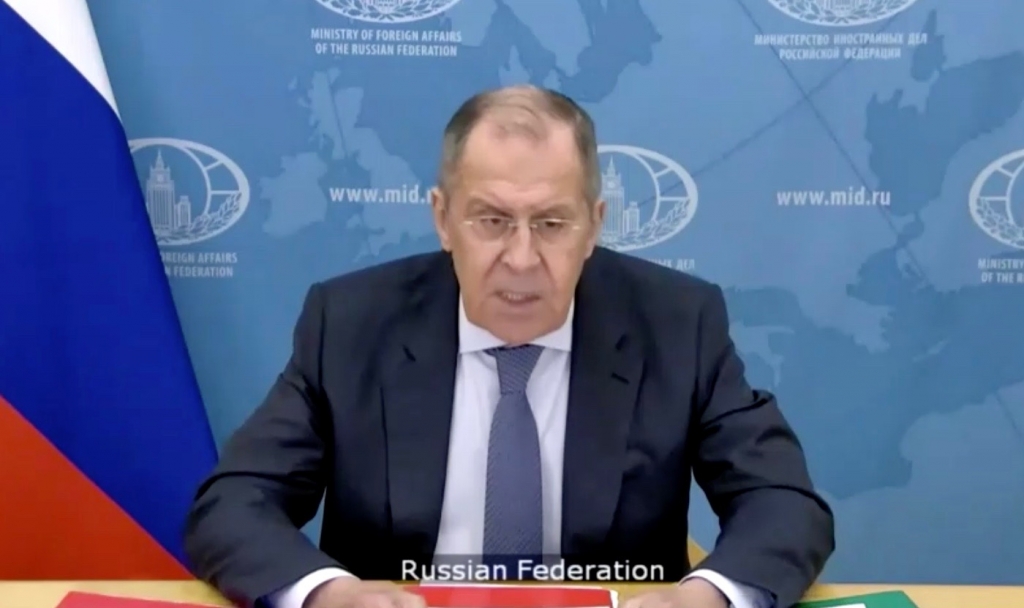Foreign Minister Sergey Lavrov's remarks at the UN Security Council Open Debate on the Middle East settlement held in videoconference format, Moscow, January 26, 2021
Mr Minister, colleagues, ladies and gentlemen,
First of all, I would like to express my gratitude to our Tunisian friends for convening today's meeting in a timely fashion. Clearly, a candid exchange of views on the Middle East settlement (MES) in the Security Council is long overdue. It is necessary to review the previous stage, to identify the reasons for the continuing deadlock in the MES, and to outline the key areas of joint work for the future.
The goal of achieving a sustainable and comprehensive MES should remain in the international community’s focus. The Palestinian issue continues to have a major influence on the overall situation in the Middle East and North Africa. This region is experiencing the disastrous aftermath of the geopolitical experiments in the wake of the “rules-based order” concept promoted by our Western colleagues.
Clearly, the steps to dismantle the international legal framework for a Middle East settlement approved by the Security Council, and replacing collective diplomatic efforts with the “art of the deal” diplomacy cannot produce the desired outcome. On the contrary, such unilateral actions delay the prospects for a just settlement of existing problems. Importantly, the process of normalising Israel's relations with the Arab states which was launched in 2020 and which we welcome, should be aimed at stabilising the Middle East region rather than be used to put the Palestinian issue aside, as they say, until better times.
The first step towards resuming the peace process should include confirming UN Security Council resolutions and other fundamental documents, including the Madrid Principles. This concerns Israel’s illegal settlement activities, plans to annex occupied Palestinian territories, the status of Jerusalem, the refugee problem and the borders. All of that should be determined in the course of a direct political dialogue between the Palestinians and the Israelis. Israel's legitimate security concerns must be addressed. The two-state solution remains the basis for a sustainable settlement benefitting both sides.
We are convinced that the United Nations Relief and Works Agency for Palestine Refugees in the Near East (UNRWA) is the only organisation that provides effective assistance to millions of Palestinian refugees in the West Bank and Gaza, as well as in neighbouring Arab countries. International financial support for UNRWA activities must continue.
In conjunction with our Egyptian and other partners, we will continue to help the Palestinian political movements restore unity among their ranks based on the platform of the Palestine Liberation Organisation. Overcoming the inter-Palestinian split will create conditions for a serious dialogue with Israel, stabilise the situation in general, and improve the humanitarian situation in and around the Gaza Strip.
We consider it important to step up, as soon as possible, the international efforts supporting the restart of direct Palestinian-Israeli talks in order to resolve a number of fundamental issues concerning a final status. We are convinced that in order to ensure progress on this path, we need to use the mediating functions of the Quartet of international mediators which is the only legitimate mechanism approved by the UN Security Council resolutions. We are confident that the Quartet, in close cooperation with the parties to the conflict and the key Arab countries, can play an effective part in the settlement.
Russia was receptive to President of Palestine Mahmoud Abbas’ initiative to convene an international conference on the MES. Our country has advocated holding such a forum from the beginning, a fact enshrined in UN Security Council Resolution 1850.
To support this initiative, we propose holding a ministerial meeting in the spring or summer of 2021 with Russia, the United States, the UN and the EU as members of the Quartet, four Arab countries: Egypt, Jordan, the United Arab Emirates, Bahrain, and of course, Israel and Palestine. It is important to invite Saudi Arabia as the drafter of the Arab Peace Initiative. Such a meeting could become a working platform for a comprehensive analysis of the situation and help the parties start a dialogue.
Taking this opportunity, I would like to note again Russia's willingness to host a Palestinian-Israeli summit in Moscow as the sides requested earlier.
We are open to discussing these and other proposals. We will appreciate any comments. We encourage our regional and international partners to accept our invitation to start a dialogue in order to find ways of collective action in the name of establishing peace and stability in the Middle East.
Thank you.
